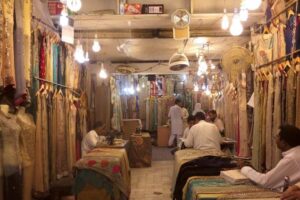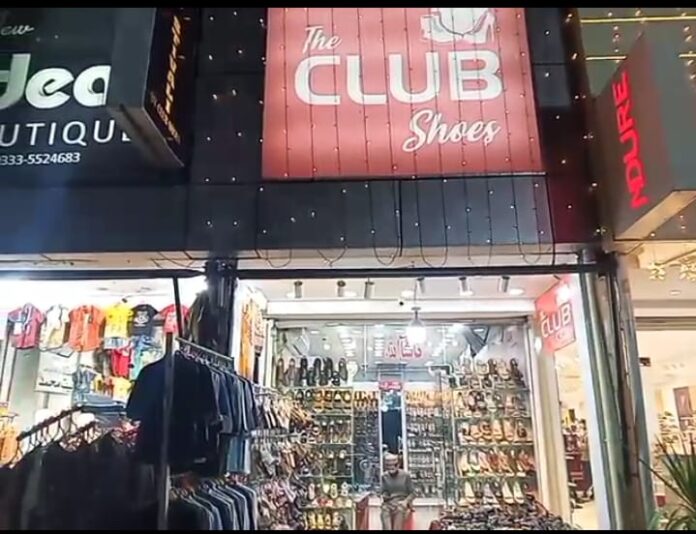- Advertisement -
By Hasnain Gardezi
Islamabad/Rawalpindi, Nov 27 (APP)::If you’re a regular customer in the markets of Rawalpindi and Islamabad, you’ve probably overheard covert phrases being spoken by salesmen among themselves and most common echoed word is “Bulla”. It’s a term that, at first glance, seems out of place but to the seasoned salesmen it is a code for any buyer. it’s the gateway to a world of coded language and hidden tactics.
The sales representatives, masters of their craft, speak in ciphers that seem like everyday chatter but are actually subtle signals meant to outwit buyers.“Bulla Chokas hai” “Bulla Sohl or Kasso Kahr ha” and countless others, these phrases create a hidden mode of communication that keeps buyers unaware of the true game being played.
So, who created this market lingo? Where did it come from? According to many elderly shopkeepers, the origins are unclear. “It comes from our forefathers,” says one elderly Pindi salesman, “We call it ‘Batori,’ a collection of self-created phrases from nowhere that no one outside the market understands,” most shopkeepers responded similarly to APP when asked whereabouts of these mysterious technical terms.

Though there’s no official record of “Batori” in trade talk history, yet it continues to thrive in the streets of the twin cities and beyond.
Muhammad Afzal, a salesman with over 30 years of experience in Pindi, Islamabad’s markets, who assisted APP in decoding these words, shares his insights with a grin. “This secretive set of slangs is passed down like a sacred trade secret. Every newcomer to the market is taught as an initiation ritual.”
Afzal revealing few more covert terms to this agency said there is an entire arsenal of latent words to deal with every kind of situation and buyer. Like, “Bulla chokas ee khial rakhi,” for example, roughly translates to, “This shopper is well-off, treat him with respect.” The message is clear from the senior or the shop owner to make sure this person walks out with something expensive in their bag.
Conversely, if a client is just browsing, there’s a code too, “Diwo ha aitch karo.” It instructs a junior store associate to wrap it up and focus on more promising buyers.
The phrase “Bulla kasso kahrr ha” signals that a client looks too poor to make a purchase. “It’s a red flag. It tells the team to get rid of him quickly,” Afzal explained.
“Bulla palsi aa” (The shopper is serious and will definitely buy).
“Chabbianlamtardassisko” (This regular visitor is accustomed to offer a low price; quote the highest to cover the profit margin). (“Chabbian” means amount and “lamtar” means high).
“This insider jargon is in decline, and young store associates aren’t picking it up anymore. It’s dying out, and at places like Saddar and Raja Bazaar, it’s mostly the older folks who still use it,” said Shafique Ahmed, a shopkeeper at Family Wear.
Faisal, a buyer at Aabpara’s Club Shoes, responding to an APP inquiry about his understanding of this coded communication, said, “I’ve heard some strange words before in the shops, but I thought it was just casual chatter between them. Never realized it could be a whole coded system.”
This coded communication also raises ethical questions. Is it clever marketing or just manipulation? Some see it as part of the competitive market and a fair practice; others as deceiving buyers.
“It’s like a hidden toolkit for understanding shoppers. Just a few words help us figure out the right approach, saving time and makes the job more rewarding as we are paid extra bucks for each deal, in addition to our salary,” Mahroof and Farooq, two seasoned sales representatives in Commercial Market, Satellite Town, echoed in agreement while sharing their thoughts with this scribe.
in a nutshell, next time when you walk into a store in the twin cities, take a moment to listen closely. There’s a good chance the customer attendants are speaking in coded words it might just change the way you shop forever.

